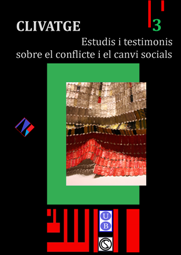Cannabis Social Clubs: standardization, neoliberalism, political opportunities and prohibition
Keywords:
Drug policy, cannabis social clubs, normalization, political opportunities, neoliberalismAbstract
In the Spanish state, the cannabis movement has been demanding a review of prohibitionist policies for over thirty years. The movement took advantage of the gaps of the prohibitionist legal framework to articulate the formula of cannabis clubs in order to stock up on cannabis collectively. Among other requirements, such clubs are not allowed to make any profit. This article analyses the influence of the sociocultural normalization of cannabis, the current social context (economic crisis) and the hegemonic discourses (neoliberalism, consumerism...) on the opening of hundreds of clubs since 2011, especially in Barcelona, which also involved the development of club management models which were ill-adapted to the body of law. This situation, together with the undeniable reality of cannabis consumption, has offered the cannabis movement a political opportunity to regulate cannabis clubs, a development which has found synergies in Catalonia, Navarra and the Basque Country. Finally, we reflect on how the prohibitionist stance has hampered the activities of cannabis clubs despite all the social and legal advances which have taken place in recent years.
Keywords:Downloads
How to Cite
Issue
Section
License
AUTHORS RETAIN COPYRIGHT. CREATIVE COMMONS
The authors who publish in this journal agree to the following terms
- The authors retain the copyright and grant the journal the right of first publication of the work, which will be disseminated following the Creative Commons Attribution license.
- Authors are free to establish additional independent contractual agreements for the non-exclusive distribution of the version of the work published in the journal (such as publication in an institutional or thematic repository, their personal website or a book), provided have your initial publication in this journal recognized.
- Texts will be published under a Creative Commons Attribution License that allows others to share the work, provided they include an acknowledgement of the work’s authorship, its initial publication in this journal and the terms of the license.
- Self-archiving of pre-print and post-print versions is allowed.







